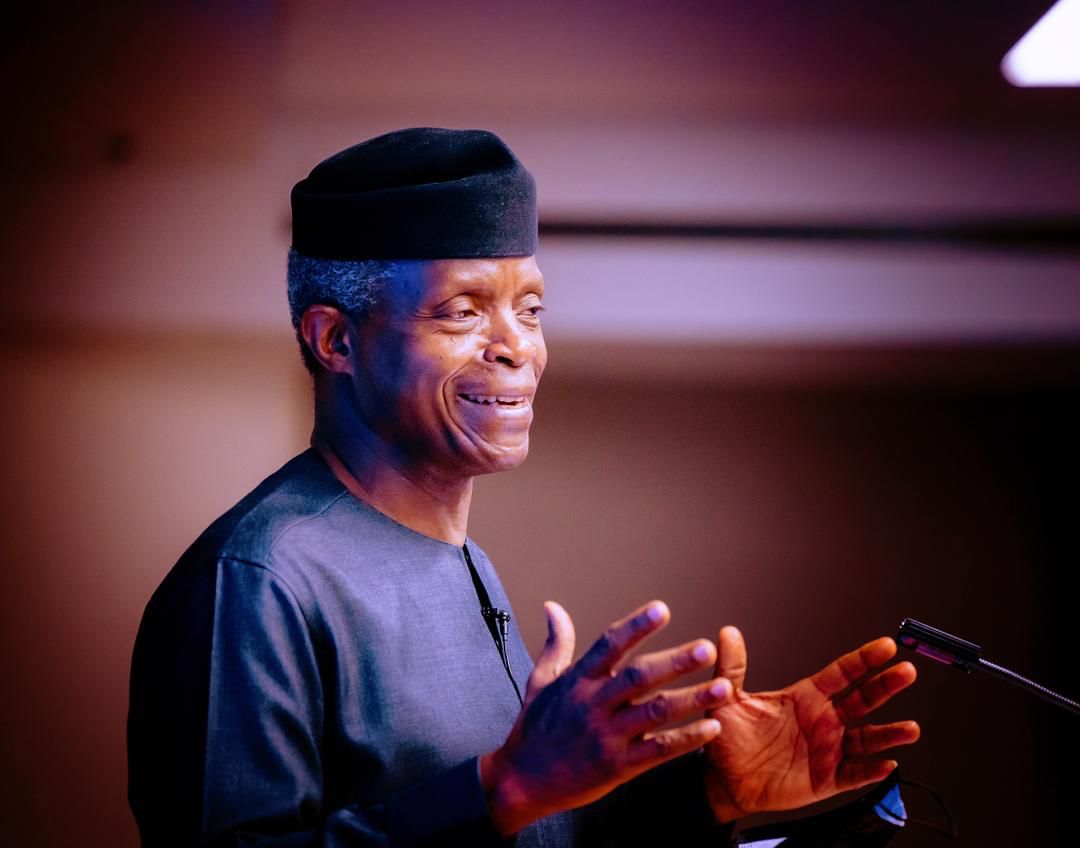In a call that can at once significantly advance the course of global net-zero emissions targets, facilitate energy access and the development of African countries, Vice President Yemi Osinbajo, SAN is proposing a Debt-For-Climate (DFC) Swap deal.
Explaining the DFC concept during a lecture on a just and equitable energy transition for Africa at the Center for Global Development in Washington D.C, Osinbajo stated that “debt for climate swaps is a type of debt swap where bilateral or multilateral debt is forgiven by creditors in exchange for a commitment by the debtor to use the outstanding debt service payments for national climate action programmes.
- 2023: Osinbajo, Lawan, Amaechi’s absence stall APC reconciliation meeting
- Osinbajo in US to seek global support for Nigeria’s Energy Transition Plan
“Typically, the creditor country or institution agrees to forgive part of a debt, if the debtor country would pay the avoided debt service payment in a local currency into an escrow or any other transparent fund and the funds must then be used for agreed climate projects in the debtor country.”
Justifying the rationale behind such a debt swap deal, the Vice President submitted that the commitment to it would “increase the fiscal space for climate-related investments and reduce the debt burden for participating developing countries.
“For the creditor the swap can be made to count as a component of their Nationally Determined Contributions (NDC).”
He added that to make this efficient “there are of course significant policy actions necessary to make this acceptable and sustainable.”
The Vice President also proposed the greater participation of African countries in the Global Carbon Market while exploring financing options for energy transition.
According to him, there is a need to take a comprehensive approach in working jointly towards common goals, including the market and environmental opportunities presented by the financing of clean energy assets in growing energy markets.
His words: “in addition to conventional capital flows both from public and private sources, it is also essential that Africa can participate more fully in the global carbon finance market.
“Currently, direct carbon pricing systems through carbon taxes have largely been concentrated in high and middle-income countries. However, carbon markets can play a significant role in catalyzing sustainable energy deployment by directing private capital into climate action, improving global energy security, providing diversified incentive structures, especially in developing countries, and providing an impetus for clean energy markets when the price economics looks less compelling – as is the case today.”
He encouraged developed countries to support “Africa to develop into a global supplier of carbon credits, ranging from bio-diversity to energy-based credits,” which would be a leap forward in aligning carbon pricing and related policy around achieving a just transition.
While also addressing the concerns of the African continent and other developing countries regarding a just transition, Prof Osinbajo noted that “the central thinking for most developing countries is that we are confronted on this issue of a just transition with two, not one, existential crises; the climate crisis and extreme poverty.
“The clear implication of this reality is that our plans and commitments to carbon neutrality must include clear plans on energy access if we are to confront poverty. This includes access to energy for consumptive and productive use and spanning across electricity, heating, cooking, and other end-use sectors.”
According to him, “nearly 90 million people in Asia and Africa who had previously gained access to electricity can no longer afford to pay for their basic energy needs. The inflationary pressures caused by the COVID-19 pandemic and other macroeconomic trends have been further exacerbated by the ongoing war in Ukraine.
“Countries worldwide have been hit by record prices on all forms of energy. Power prices are breaking records across the globe, especially in countries or markets where natural gas plays a key role in the energy mix.”
Members of the Energy Transition Implementation Working Group (ETWG) present at the lecture included the Minister of Works & Housing, Babatunde Raji Fashola; Minister of Finance, Budget and National Planning, Dr. (Mrs) Zainab Ahmed; Minister of Environment, Mohammed Abdullahi; Director-General and CEO of the National Council on Climate Change, Salisu Dahiru; Nigeria’s Ambassador to the United States of America, Dr. Uzoma Emenike, Special Representative of the UN Secretary-General for Sustainable Energy for All (SEforALL), Ms Damilola Ogunbiyi; Managing Director of Niger Delta Power Holding Company Limited, Chiedu Ugbo; and other senior government officials.

 Join Daily Trust WhatsApp Community For Quick Access To News and Happenings Around You.
Join Daily Trust WhatsApp Community For Quick Access To News and Happenings Around You.
